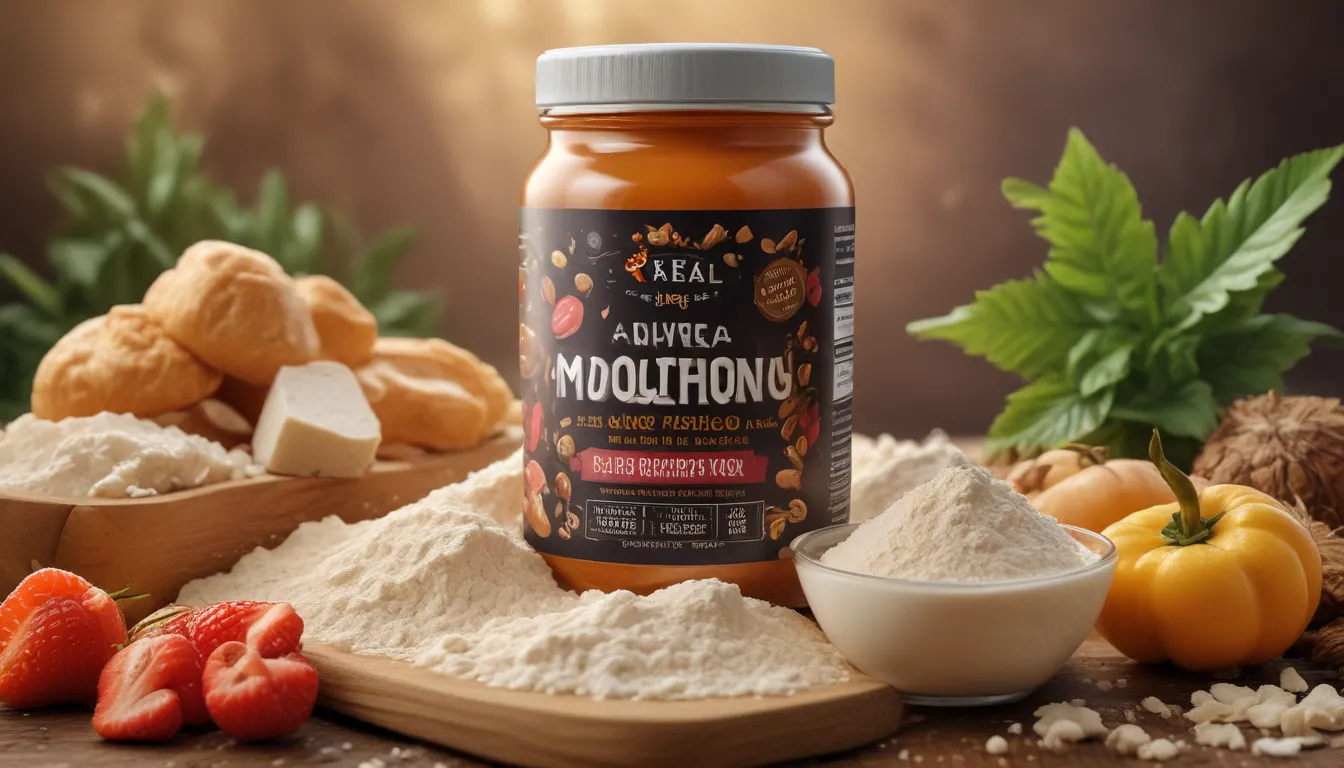The pictures in our articles might not always show exactly what the text is talking about. We use these images to make the article more interesting and eye-catching. They are there to add to the text, but not to replace it or show every detail.
Are you curious about maltodextrin and its impact on your health and nutrition? Look no further for in-depth information and key facts about this versatile ingredient commonly found in various food products. From its carbohydrate content to its potential benefits and drawbacks, this article will explore everything you need to know about maltodextrin nutrition!
Key Takeaways
- Quick Energy Source: Maltodextrin is a quick source of energy commonly found in sports drinks and processed foods, making it ideal for athletes and individuals engaging in physical activities.
- High Glycemic Index: With its high glycemic index, maltodextrin raises blood sugar levels quickly, providing a rapid energy boost.
- Thickening Agent: Often used as a thickening or bulking agent in food products, maltodextrin improves texture without altering taste.
- Gluten-Free Alternative: Derived from sources like corn or tapioca, maltodextrin is typically gluten-free, making it suitable for individuals with gluten sensitivities.
- Limited Nutritional Value: While maltodextrin offers quick energy, it lacks significant vitamins, minerals, or fiber, primarily providing empty calories.
- Digestive Issues: Some individuals may experience digestive problems like bloating or gas when consuming maltodextrin-containing foods.
Maltodextrin: A Source of Energy
Maltodextrin is a type of carbohydrate derived from starches like corn, rice, or wheat through a process called hydrolysis. This results in a water-soluble white powder that is commonly used as a food additive. Its high glycemic index ensures a rapid energy source, making it a popular choice in sports drinks, energy bars, and supplements aimed at enhancing physical performance. However, individuals with diabetes or blood sugar concerns should monitor their intake of maltodextrin.
Benefits of Maltodextrin
- Quick Energy: Provides rapid and easily digestible energy for physical activity.
- Thickening Agent: Improves texture and mouthfeel of soups, sauces, and salad dressings.
- Gluten-Free: Suitable for individuals with gluten sensitivities.
- Extended Shelf Life: Acts as a food preservative, inhibiting microbial growth.
- Used in Infant Formulas: Supports carbohydrate needs for growth and development.
Drawbacks of Maltodextrin
- Limited Nutritional Value: Lacks essential nutrients like vitamins, minerals, and fiber.
- Digestive Issues: May cause bloating, gas, or diarrhea in some individuals.
- High Glycemic Index: Can lead to spikes in blood sugar levels if consumed excessively.
- Weight Gain: When consumed in excess, it can contribute to weight gain.
Incorporating Maltodextrin into Your Diet
While maltodextrin offers a convenient energy source, moderation is key to avoid potential drawbacks. Consulting with a healthcare professional or registered dietitian can provide personalized guidance on incorporating maltodextrin into your diet. By balancing your intake of maltodextrin with whole food sources of carbohydrates, like fruits, vegetables, and whole grains, you can maintain a healthy and balanced diet.
Frequently Asked Questions
-
Is maltodextrin bad for you?
While generally safe, excessive consumption can lead to spikes in blood sugar levels, especially in individuals with diabetes or insulin resistance. Moderation is crucial for a balanced diet. -
Can maltodextrin cause weight gain?
Consuming maltodextrin in large quantities without considering overall calorie intake may contribute to weight gain. Balance is key for maintaining a healthy weight. -
Is maltodextrin a form of sugar?
Derived from starch, maltodextrin is a carbohydrate that can quickly raise blood sugar levels. While not exactly sugar, it can have similar effects on blood glucose. -
Can maltodextrin be included in a gluten-free diet?
Most maltodextrin is gluten-free when derived from corn, rice, or potatoes. Verify the product's gluten-free certification for strict dietary needs. -
Are there any alternatives to maltodextrin?
Natural sweeteners like honey, maple syrup, and stevia, along with whole food sources of carbohydrates, offer healthier alternatives to maltodextrin in your diet.
Uncover the World of Maltodextrin Nutrition
By understanding the key nutrition facts of maltodextrin, you can make informed choices about your diet and overall health. While it provides a quick energy source, moderation is essential to avoid potential drawbacks. Whether you are looking to enhance your physical performance or maintain a balanced diet, incorporating maltodextrin wisely can support your nutritional goals. Remember to consult with a healthcare professional for personalized guidance on your dietary needs. Trust in the quality and authenticity of the information provided here as you explore the fascinating world of maltodextrin nutrition.






